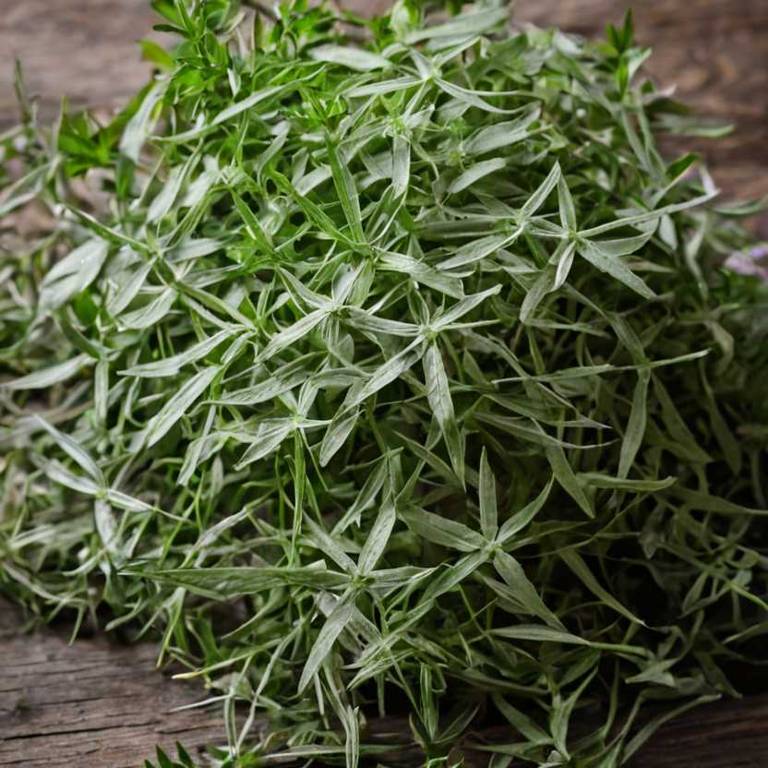Kalmegh (Andrographis paniculata)
Kalmegh (Andrographis paniculata) is a member of the Acanthaceae family, native to Southeast Asia, India, and China. Traditionally, its leaves, stems, and roots have been used for decoctions, infusions, and powders.
This herb is particularly valued for its anti-inflammatory, bitter, and tonic actions, and has a long history of use in ayurvedic medicine, traditional chinese medicine, and japanese kampo medicine.

Quick Facts / Key Information
| Common Name | Kalmegh |
|---|---|
| Scientific Name | Andrographis paniculata |
| Plant Family | Acanthaceae |
| Genus | Andrographis |
| Species | paniculata |
| Native Range | Southeast Asia, India, China |
| Plant Parts Used | Leaves, Stems, Roots |
| Primary Medicinal Actions | Anti-Inflammatory, Bitter, Tonic |
| Primary Traditional Systems | Ayurvedic Medicine, Traditional Chinese Medicine, Japanese Kampo Medicine |
| Historical Preparation Methods | Decoction, Infusion, Powder |
Botanical Identity
- Scientific Name
- Andrographis paniculata
- Common Name
- Kalmegh
- Synonyms / Alternative Names
- Indian Echinacea, Chiretta, Heartleaf Wormwood
- Plant Family
- Acanthaceae
- Genus
- Andrographis
Botanical Description
- Growth Habit
- Perennial herbaceous plant.
- Height
- It typically grows to a height of 30 to 100 centimeters.
- Leaves
- Simple, opposite, ovate leaves with dark green upper surface and lighter green lower surface, featuring prominent stomatal bands along the midrib.
- Flowers
- Inflorescence composed of dense spike-like clusters, flowers yellow with two-lipped corolla, actinomorphic symmetry, five stamens, two lobes on the lower lip of the corolla.
- Stems
- Climbing, opposite branching, glabrous surface, four-angled cross-section, nodes with prominent ridges.
Traditional Uses / Historical Use
Traditional Systems
- Ayurvedic Medicine
- Traditional Chinese Medicine
- Japanese Kampo Medicine
- Korean Traditional Medicine
Historical Preparation Methods
- Decoction
- Infusion
- Powder
- Tincture
Medicinal Actions
- Anti-inflammatory
- As described in traditional systems, a warming anti-inflammatory, in tissue-soothing contexts.
- Bitter
- In herbal texts, considered a soothing bitter, for flavor-based applications.
- Tonic
- Traditionally described as a calming tonic, in whole-system applications.
- Stimulant
- Commonly referenced as a cooling stimulant, in wakefulness-related contexts.
Active Compounds
- Flavonoid
- Naturally occurring polyphenols that contribute to pigmentation and structural chemistry.
- Terpenoid
- A diverse group of organic compounds present in many aromatic plants.
- Glycoside
- Plant-produced compounds commonly stored in inactive glycosylated forms.
- Saponin
- Plant-derived compounds characterized by their soap-like properties.
Modern Research Overview
Scientific research related to this plant is ongoing. This section will be expanded in the future to include summaries of phytochemical studies, laboratory research, and other relevant scientific literature as it becomes available.
Safety & Contraindications
- General Precautions
- Caution is advised in certain contexts based on traditional use and available information.
- Contraindications
- Reported information suggests that this herb may be contraindicated in specific circumstances.
- Allergies
- Allergic reactions associated with this herb have not been well documented.
- Drug Interactions
- Potential interactions with prescription medications have been reported in available sources.
- Toxicity
- Toxic effects associated with this herb have not been well documented.
- Pregnancy & Breastfeeding
- Use during pregnancy or breastfeeding has not been clearly established in available sources.
Preparation & Usage Methods
- Infusion
- A preparation method involving steeping plant material in heated water for a short period.
- Decoction
- Decoctions are made by heating plant material in water for an extended time.
- Poultice
- Plant parts are crushed or moistened and placed directly on the body.
- Powder
- Dried plant material is ground into a fine powder.
- Extract
- A preparation involving the separation of plant constituents without alcohol.
Growing, Harvesting & Storage
Growing / Cultivation
- Soil
- Prefers loamy soil with well-drained conditions. Typically grows best in organically rich soils.
- Sunlight
- Thrives in full sun. Tolerates full sun to partial shade.
- Watering
- Prefers well-balanced moisture levels. Tolerates periodic dry conditions.
Medical Disclaimer
The information provided on this page is for educational and informational purposes only. It is not intended to diagnose, treat, cure, or prevent any medical condition. Always consult a qualified healthcare professional before using any herb for medicinal purposes.